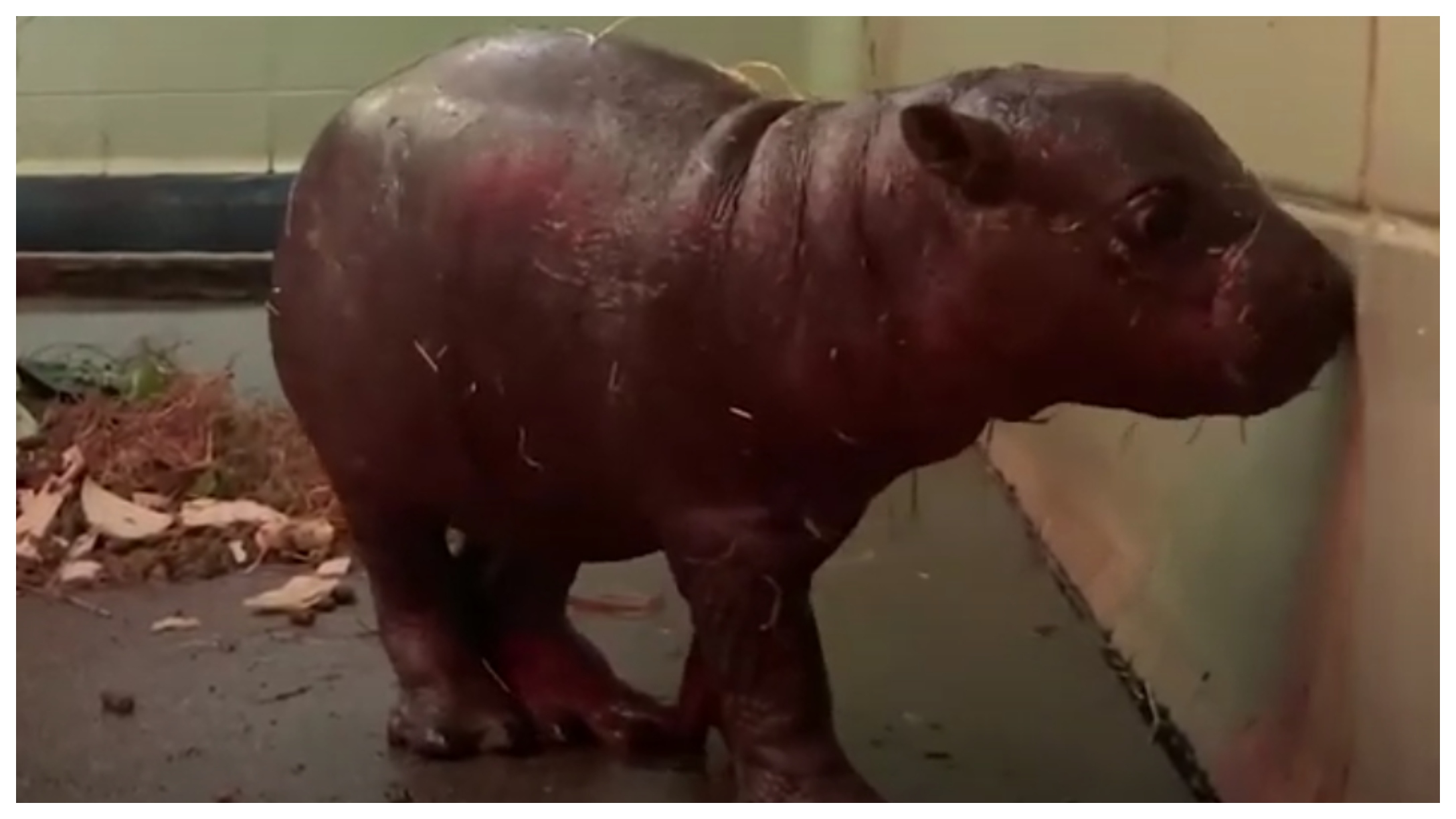
Holy cuteness overload! An adorable pygmy hippo was just born at the Edinburgh Zoo, one of Scotland's most popular zoos. It's super exciting for so many reasons, but mainly because it's an endangered species. The zoo also just reopened to visitors, who will be delighted by the new addition.
The little cutie arrived on Saturday, April 17, and is being kept under close watch. It's basically a royal birth with all the attention this creature is getting! This kind of hippo is native to West Africa, and the population has been seriously declining due to habitat destruction, like logging and farming.
The Royal Zoological Society of Scotland is a wildlife charity focused on research and conservation. The pygmy will be studied as part of its first-ever study of pygmy hippos through the RZSS WildGenes laboratory.
Jonny Appleyard is a hoofstock team leader at the Edinburgh Zoo. He said the hippo, who hasn't yet been named, is "growing stronger and more confident every day." That's excellent news! He also said that she's still very young, so a lot of caution is being taken to keep her safe.
“As she is still so young, we are limiting opening hours and numbers in our indoor viewing area to give the calf and mum Gloria some time to get used to visitors." Just like a new human baby, she needs a lot of care and attention. Luckily, it seems like she's in great hands.
He added, "The first 30 days are critical for her development, so we’ll be keeping a close eye on them both at this sensitive time and plan to name her in the coming weeks.”
He also commented on the excitement of the zoo reopening its doors: “It has been great to be able to welcome our wonderful visitors back to the zoo and hope it won't be long before they can spot our little calf."
The little hippo was born to parents Otto and Gloria. She weighed 11 lbs., 14 oz. (5.4 kg). She is now just over 18 lbs. (8.4 kg). Soon, she will be able to delight all the guests who get to meet her.
“Every visit helps care for our amazing animals, like our pygmy hippos, and protects threatened species in Scotland and across the world," Appleyard says.




